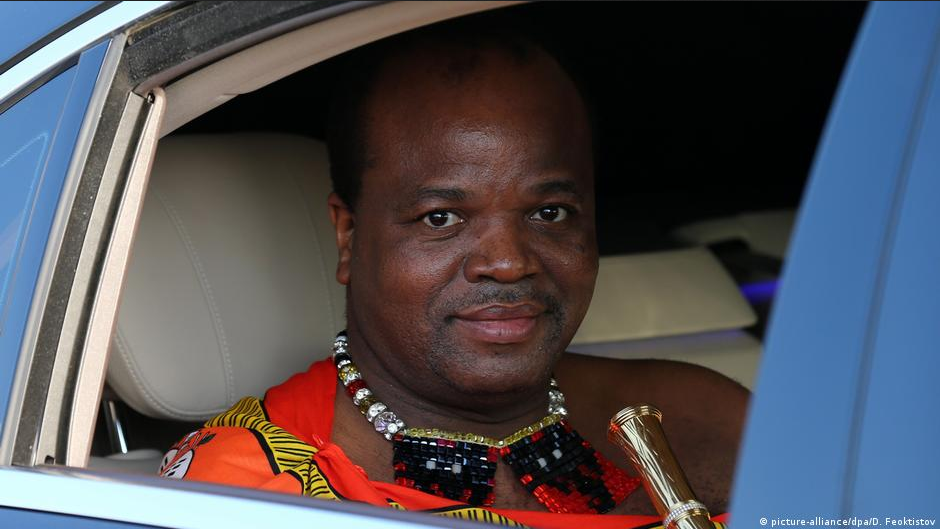THE United Nations on Tuesday called for an independent investigation into reported rights abuses, including by law enforcement, following the eruption of deadly violence during protests in Eswatini.
Demonstrations first erupted in May following the death of a 25-year-old law student, reportedly at the hands of police.
The UN human rights office pointed to reports of “disproportionate and unnecessary use of force, harassment and intimidation” by security forces sent in to quell the protests that escalated last week in the tiny southern African kingdom.
Twenty people were killed in the protests, the human rights organization Amnesty International (AI) confirmed, although there are reports that as many as 52 protesters died in the crackdown.
“At the same time, close to 200 protesters have been hospitalized for injuries, including gunshot wounds sustained from live ammunition fired by the police and others,” Deprose Muchena, AI director for East and Southern Africa, told DW.
There were also confirmed reports of torture, beatings and jailing of opponents, according to Muchena.
On Monday, after a week of demonstrations against the autocratic rule of King Mswati III, the streets of Eswatini’s main cities looked deserted.
Shops were closed down, adding to the hardship of a nation hit in equal measure by the coronavirus pandemic and economic decline. The internet remained partially blocked by the government, making communications difficult.
Activist Maxwell Dlamini told DW that there was a shortage of food and fuel in all major towns. “In the rural areas they are having even more difficulties, because there is nothing that is reaching them. So, most people are trying to go to South Africa to get essentials like food, fuel and other supplies.”
More strife to come
Eswatini, formerly Swaziland, has a history of popular protests. But the situation never previously excalated to the present extent.
It could get worse soon. “When you look at the economy, which is performing very badly, the triple burden of unemployment, poverty and inequality coincides with the political issues in the country to create a powder keg situation,” Dlamini said.
Peter Fabricius, a consultant for the South African Institute for Security Studies (ISS), told DW that a combination of factors contributed to the current escalation of violence.
“COVID might have been a kind of indirect cause, because people are feeling more deprived than normal, because of the lockdown and general economic decline,” Fabricius said.
Prime Minister Ambrose Dlamini died from COVID-19 in December.
The king then appointed Themba Masuku, “who doesn’t seem to be very popular and seems to lack the authority and the skill to control some of the issues,” Fabricius said.
Claiming the need for measures against the spread of COVID, Masuku banned the population from delivering in-person petitions for his own replacement by an elected head of government.
This gave impetus to protests that started last month, after the unexplained death of 25-year-old law student Thabani Nkomonye, allegedly at the hands of the police.
Shaky throne
The government’s violent reaction shows that King Mswati II — best known for his 15 wives and lavish lifestyle — is feeling increasingly insecure.
“He is maintaining an autocracy in a world which is supposed to be democratic. So I think he feels somewhat isolated,” Fabricius said.
Periodical unrest in Eswatini was never as violent before
The analyst added that there is some credibility to the security forces’ claim that they were trying to rein in heavy property destruction and damage by the protesters.
“None of this justifies the use of lethal force. But if you’re asking why, I would think that that’s those are contributing factors,” he added.
The government said on Twitter that the economic damage caused by the nationwide protests was great, and at least 5,000 jobs had been lost.
Most of the property that was destroyed or damaged — including shops, supermarkets and even a brewery — belonged to South Africans.
Deliberately targeted?
South Africa is almost the only trading partner of the country of 1.2 million inhabitants. The big neighbor accounts for 90% of its imports and buys about 70% of its export products.
That raises the possibility that South African businesses in Eswatini were not accidentally targeted by the protesters demanding political reform.
“Clearly it would have annoyed South Africa that South African property is being destroyed,” Fabricius said. “There is some sense, actually, that the protesters were targeting South African companies, because they feel South Africa’s not doing enough.”
Political parties in South Africa, including the governing African National Congress (ANC), have been quite critical of the king’s autocratic style, condemning the persecution of opponents, the banning of political parties and violations of fundamental rights.
But the government itself has tended to show unusual leniency towards King Mswati. Attacking South African property “would be providing some impetus for South Africa to put on pressure,” Fabricius said.
SADC reacts
On Sunday, a team from the Southern African Development Community (SADC) arrived in Eswatini to seek talks with civil society as well as the government.
It was also set to investigate unofficial reports of several deaths.
“Unfortunately, what tends to happen is that when lives are lost and property is destroyed, then the region sits up and takes notice,” expert Fabricius said.
“Last week, I called the head of the Regional Early Warning Centre (REWC) in Gaborone to ask: What are you doing? How are you responding? And he said: ‘Well, Swati officials told us that everything is under control. An intervention isn’t necessary.’ Two days later, they announced that they they were going in. In that period, of course, the situation had got further out of control,” Fabricius said
Though the situation seems to have calmed down for now, the opposition in Eswatini warned that there are more protests to come.
“People are not backing down. They have suffered enough,” Mcolisi Ngcamphalala, spokesperson of the Communist Party of Swaziland, told DW.
- DW



